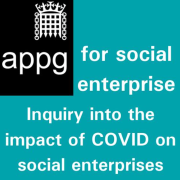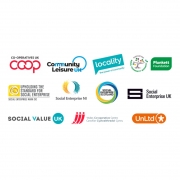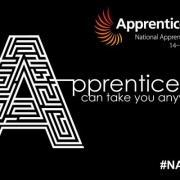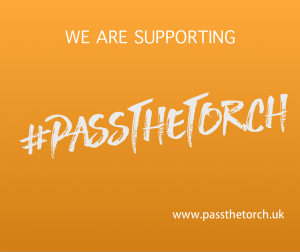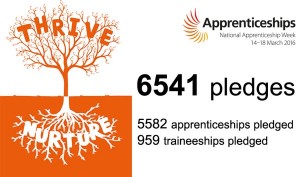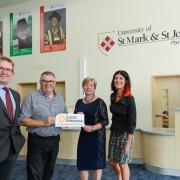Social Enterprise Mark CIC has partnered with several well-respected standard setting and accreditation bodies to encourage consumers to challenge ethical labels and sustainability claims that are used by brands they buy from.
With recent studies* suggesting that sustainability issues are playing an increasing role in consumer purchase decisions, the new campaign aims to educate consumers about ways they can identify genuine labels and claims, and therefore make more informed choices. Working with fellow accreditation bodies Golf Environment Organization, Living Wage Foundation, Soil Association Certification and TrustMark, and also Ethical Consumer, a key player in the ethical consumer movement, Social Enterprise Mark CIC hopes to get consumers thinking more about the labels and badges that appear on the products they buy, and to find out what they actually mean.

Lucy Findlay, Managing Director of Social Enterprise Mark CIC explains the motives behind the campaign: “With the practice of greenwashing now commonplace in consumer markets, we feel it is really important for consumers to challenge what brands are telling them and not just accept their claims at face value.”
“That is why we have developed this campaign – to educate and support consumers to question the validity of ethical claims, to enable them to identify those that actually have some substance. We are pleased to have the support of several high-profile partners, to engage with a wider consumer audience across multiple sectors.”
Director of Ethical Consumer Tim Hunt, explains their reasons for getting involved: “We are pleased to support the ‘Beyond the Badge’ campaign, as a timely reminder of the need to question the real meaning behind the logos, symbols and standards on the products we buy. As time-poor consumers we often rely on what companies tell us, as to how sustainable and ethical a product or service is. In a ‘greenwash-rich’ world we very much encourage shoppers to ask tough questions of producers and retailers, to ensure they reflect our values and are deserving of our custom.”
The campaign calls on consumers to look ‘beyond the badge’, to find out more about ethical claims, and to look for any evidence or proof to support such claims. Social Enterprise Mark CIC has put together some useful tips to support consumers to cut through the “greenwash” to identify genuine labels and claims. One way that is suggested is to look out for a symbol of accreditation, which has been independently assessed and awarded by a third party. Social Enterprise Mark CIC and the campaign partners believe that accreditation and certification is vital in engendering consumer trust in brands, as it provides visible proof of an organisations sustainability credentials.
As explained by Clare McDermott, Business Development Director of Soil Association Certification, “Trust is a major issue for consumers; our research last summer found this to be the biggest influencer on purchasing behaviour and accreditation and certification is the best way to guarantee trust and reassure people. We’re really pleased to be supporting Beyond the Badge the campaign as the UK’s leading organic and ethical certification body, to help make sure people know what they are buying and to expose greenwashing and false claims.”
This is a sentiment echoed by Libi Newell, Communications Manager at Golf Environment Organization “Credibility should be at the centre of any meaningful standard and certification system. That has been the case with GEO Certified® from the very start; it’s transparency and independent verification has been instrumental in it becoming a trusted mark with a strong reputation. Because of this it provides value to golf clubs, and the golf industry demonstrating real commitment and positive impact. We are pleased to be involved with this campaign, to promote credible certification and support consumers to make informed purchase decisions, and to know they are buying from businesses they can trust.”
Social Enterprise Mark CIC and the campaign partners urge consumers to pledge their support to the campaign, and to get involved by spreading the word on social media. There is also a Thunderclap that people can join, where a message will be posted at the same time from hundreds of social media accounts, to create a buzz of conversation about our new scheme.
People are also encouraged to keep an eye out for examples of greenwashing and to share these on social media, using the campaign hashtag #GoBeyondTheBadge. Full information can be found at www.socialenterprisemark.org.uk/beyond-the-badge/
* Unilever study of 20,000 adults from five countries revealed one third (33%) of consumers are now buying from brands based on their social and environmental impact. The study asked how sustainability concerns impact choices in-store and at home. Crucially, it then mapped their claims against real purchase decisions, giving a more accurate picture than ever of what people are buying – and why.
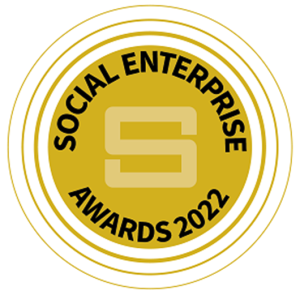 There are a total of 15 categories at this year’s Awards which capture the breadth, diversity and impact of the social enterprise community. As well as the award for overall Social Enterprise of the Year and the ‘One-to-Watch Award’ recognising a pioneering start-up business there are also more specific categories for social enterprises working in particular areas such as healthcare or in providing education, training and jobs. There are also awards for social enterprises tackling the climate crisis and those leading the way in promoting diversity, inclusion, equity and justice across their work.
There are a total of 15 categories at this year’s Awards which capture the breadth, diversity and impact of the social enterprise community. As well as the award for overall Social Enterprise of the Year and the ‘One-to-Watch Award’ recognising a pioneering start-up business there are also more specific categories for social enterprises working in particular areas such as healthcare or in providing education, training and jobs. There are also awards for social enterprises tackling the climate crisis and those leading the way in promoting diversity, inclusion, equity and justice across their work.
